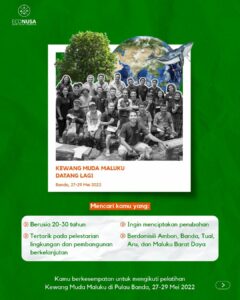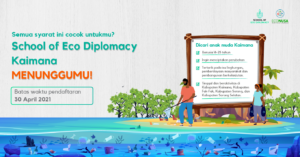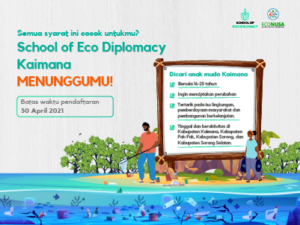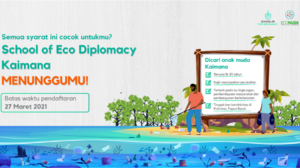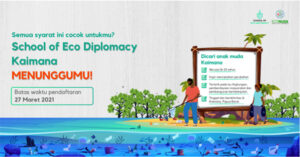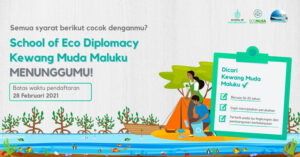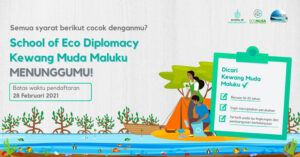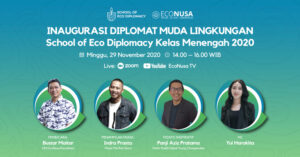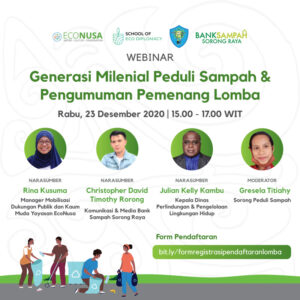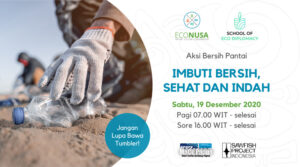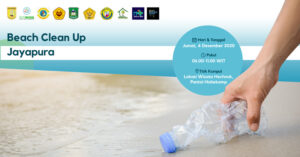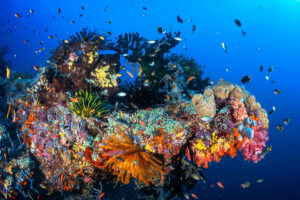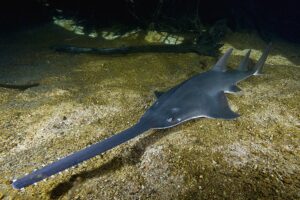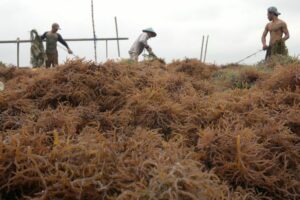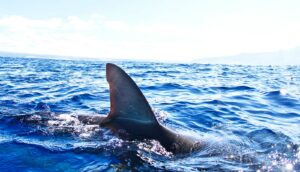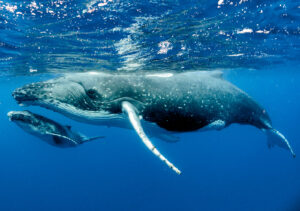Despite being titled as a mega biodiversity country by its super high diversity in forest and marine life, Indonesia is actually threatened by deforestation and forest degradation, especially due to the expansion of palm oil concessions. In 2014-2015, Indonesia’s deforestation rate even reached 1.09 million hectares and became one of the highest in the world; destroying some of the tropical rainforests that support the life of both animals and indigenous peoples.
Tidak hanya di rimba, tantangan serupa juga melanda kawasan pesisir, laut, dan sektor perikanan. Praktik penangkapan ikan skala besar, metode penangkapan ikan yang merusak, dan tata kelola yang bermasalah, membuat kesejahteraan nelayan dan daya dukung ekosistem laut menjadi rendah, serta populasi biota laut terus menurun.
Not only in the jungle, similar challenges also hit coastal areas, the oceans, and the fisheries sector. Large-scale fishing practices, destructive fishing methods, and problematic marine governance have reduced the welfare of fishermen and the carrying capacity of marine ecosystems, and the population of marine life continues to decline.
The only area that currently still has a fairly good quality of tropical forest and marine ecosystems is in eastern Indonesia, especially in the Land of Papua and the Maluku Islands. This makes Eastern Indonesia now the last stronghold of tropical rain forests in Indonesia. Unfortunately, Indonesian people’s perception of the eastern region is still dominated by negative stereotypes, such as conflicts, natural disasters, and the backwardness of indigenous peoples. This can not be separated from the tightly controlled information by the central government since decades ago and is also exacerbated by the lack of communication infrastructure which limits the flow of information.
On the other hand, Indonesia is also blessed with an extraordinarily high human resources. According to the 2015 census results from the Central Statistics Agency (BPS), Indonesia’s population is 238,518,000 people, and it is estimated that it will reach 271 million people by 2021. Nearly 30 percent of Indonesia’s population is young and of productive age, with a population of teenagers aged 16-30 years as many as 63.82 million people or equivalent to 24.51 percent of the total population in 2018.
EcoNusa believes that young people have a big role and opportunity to be involved in protecting the forest and marine ecosystems by building a new narrative about Eastern Indonesia. The youth can bring positive messages and inspire people to change for the better for the environment and the people of Eastern Indonesia.
The School of Eco-Diplomacy (SED) program is the form of EcoNusa’s initiative in increasing the capacity of young people to promote cultural diversity and rich biodiversity in Indonesia, especially in Papua and the Maluku Islands. SED aspires to create a new narrative to accelerate the welfare of citizens and the preservation of the natural wealth of Eastern Indonesia. New stories about ecology and society, especially in Papua and the Maluku Islands, are expected to be able to change the way natives and outsiders perceive the situation, as well as fostering hope and optimism from the people of eastern Indonesia.
The SED program prioritizes an environmental diplomacy approach that negotiates the interests of the parties by emphasizing the importance of protecting and saving the ecology. The approach is developed into three types of diplomacy as a focus for developing the capacity of young people, namely:
- Public diplomacy, which promotes values and policy interventions related to the public interest.
- Community diplomacy, which communicates the exchange of knowledge, skills, and empowerment in the community.
- Digital diplomacy, which utilizes digital information technology to campaign broad issues.
With this environmental diplomacy approach, SED alumni are expected to be able to find their interests and aspirations related to ecological and climate issues in various regions in Indonesia, and actively communicate them to networks from local, national, to international levels.



